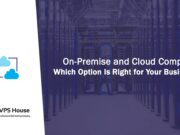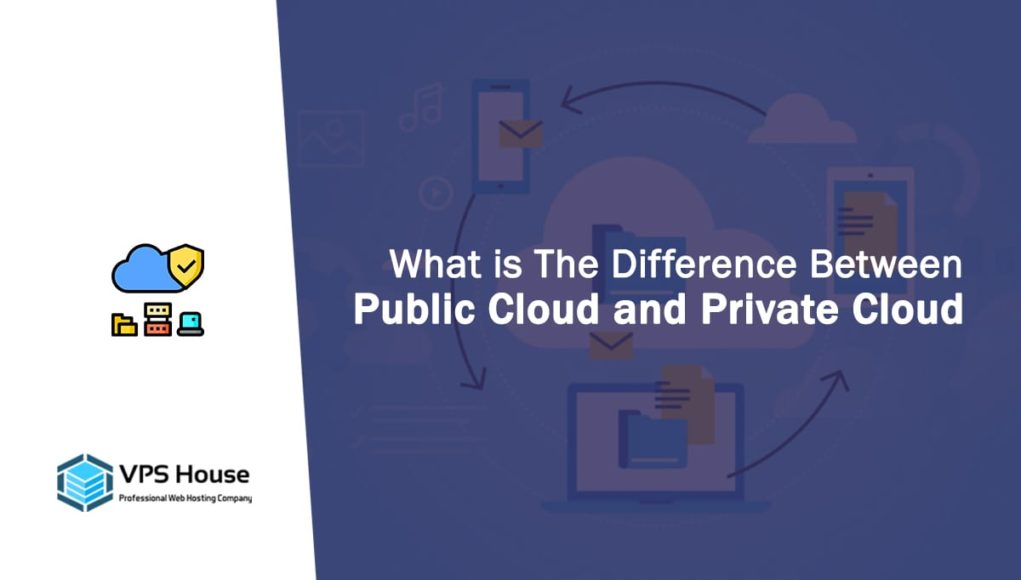Cloud computing has taken the world by storm and represents significant time and cost savings for most businesses. There is little functional difference between a public cloud and a private cloud platform. Each empowers users with the capability to launch virtual servers in a data center within minutes, each is inherently scalable, and each can be controlled, integrated, and automated via an API.
But from the perspective of an enterprise organization, public and private clouds platforms have meaningful cost, compliance, and complexity differences, and it’s up to each business to assess its particular needs before coming to a decision about which cloud platform is the best choice.
As Adam Stern puts it:
“When considering a move to the cloud, companies must evaluate these two functionally similar technologies and assess the appropriateness of each for their needs. They must look at the specific applications and processes they want to transition to a cloud-based infrastructure, and factor in security, compliance, cost and scalability before deciding which of the two options aligns most closely with their business strategies.”
In this article, we lay out some of the key differences between public vs private cloud so that decision-makers can compare each modality to the needs of their business.
What is the public cloud?
A public cloud environment is a collection of physical servers hosted in a data center that are each designed to perform a single function. For instance, one node will be dedicated to providing storage to the cloud. Another node may handle memory, CPU, or other backup functions. Finally, a control node will manage all of the nodes and migrate virtual servers in the event that a node goes offline.
Each of these nodes is hosted in a secure data center so that power, networking, and cooling are also redundantly provided.
The “public” in public cloud means that numerous users each share the same cloud platform. But each is hosted on their own virtually isolated server so as to not interfere with one another or compromise the security of another user.
What is the private cloud?
Both private and public clouds utilize the same underlying technology as far as how resources are distributed. In a private cloud, these resources are only used by a single client. That means the cloud infrastructure is purpose-built for a single organization and no other users share any of the server nodes.
As you can imagine, a private cloud infrastructure essentially involves provisioning at least 5 physical servers. Compared to a public cloud that costs just $5 per month to start, private cloud deployments are a lot more expensive. However, if an organization needs the computing resources and compliance of a private cloud, it is still an affordable solution for larger companies.
What is the hybrid cloud?
A hybrid cloud is a cloud computing model that combines the benefits of a private or public cloud with other hosting infrastructures such as dedicated servers or colocation.
Most businesses will find that they have certain applications that require the scalability and high-availability of cloud and other applications that need more CPU / memory or other computing resources that a dedicated server is better suited for. This mix of applications makes a hybrid cloud a good choice as you can leverage the best of both cloud services.
Public Cloud v.s. Private Cloud Comparison
Security
There’s no reason — broadly speaking — that public clouds should provide any less security than a private cloud platform. A well-engineered public cloud platform presents more-or-less the same security risks as a private cloud platform; the true risk is in the details. Both public and private cloud platforms are likely to be more secure than any platform a company may build in-house.
However, some enterprise organizations prefer to keep sensitive data within systems over which they have control. Private clouds are an ideal choice for companies that want to make absolutely certain that no other organization has access to the physical infrastructure on which their data is hosted and processed.
While it is certainly possible to achieve compliance with a range of industry regulatory frameworks on a public cloud platform, it’s often easier if a company can guarantee that the infrastructure isn’t shared. For companies that need to conform to PCI DSS, Sarbanes-Oxley, or HIPAA, a private cloud provides an isolated single-user infrastructure environment with greater insight into how security is implemented.
Scalability
A key benefit of the public cloud is almost limitless scalability. At the level of the virtual environment, both public and private clouds are capable of quickly deploying virtual servers in-line with demand, but private clouds are limited to the physical hardware that an organization has available to it.
Public cloud users don’t have to worry about scaling the physical layer; that’s handled transparently by a cloud provider like VPS House Technology Group. We’ll worry about deploying more nodes in our data centers so you don’t have to.
Hosted private cloud users can also scale their platform, but the addition of new physical nodes in the data centers is likely to take somewhat longer. In many cases that isn’t an issue because server utilization is predictable and manageable, and scaling the physical infrastructure layer can be done quickly and efficiently, but if an organization demands maximum elasticity from its platform, the public cloud may be the best option.
Performance
A private cloud puts the entirety of the platform’s resources, including IO, processing power, memory, and storage at the disposal of a single organization. That makes a private cloud the perfect choice for applications — including financial, scientific, and big data applications — that depend on the lowest possible latencies.
Getting Started With the Cloud
There is no one-size-fits-all cloud platform. Every organization should consider the specific cloud computing needs of their business or project, and choose the modality that best suits their desired strategic outcome. Public clouds have the distinct advantage of being instantly available and affordable for any budget, but private clouds are perfect for larger enterprises with strict compliance needs.
If you’d like to discuss the mix of cloud services that will help your organization make the most of its infrastructure investment, VPS House Technology Group’s cloud experts stand ready to help and advise. We can help you choose between a private vs public cloud, or develop a hybrid solution that will work for your needs and budget. You can also view our cloud hosting options and get started today.





























